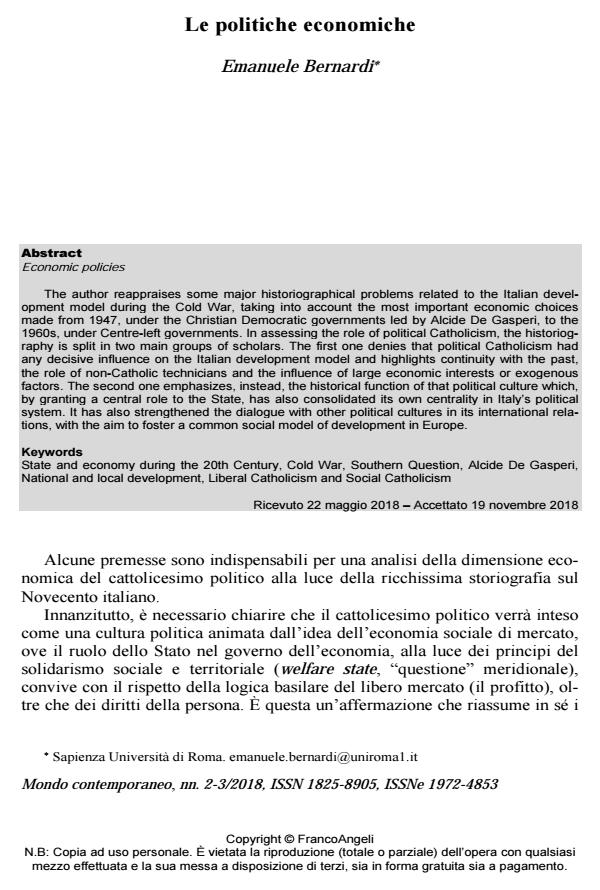Economic policies
Journal title MONDO CONTEMPORANEO
Author/s Emanuele Bernardi
Publishing Year 2019 Issue 2018/2-3
Language Italian Pages 13 P. 229-241 File size 240 KB
DOI 10.3280/MON2018-002019
DOI is like a bar code for intellectual property: to have more infomation
click here
Below, you can see the article first page
If you want to buy this article in PDF format, you can do it, following the instructions to buy download credits

FrancoAngeli is member of Publishers International Linking Association, Inc (PILA), a not-for-profit association which run the CrossRef service enabling links to and from online scholarly content.
The author reappraises some major historiographical problems related to the Italian development model during the Cold War, taking into account the most important economic choices made from 1947, under the Christian Democratic governments led by Alcide De Gasperi, to the 1960s, under Centre-left governments. In assessing the role of political Catholicism, the historiography is split in two main groups of scholars. The first one denies that political Catholicism had any decisive influence on the Italian development model and highlights continuity with the past, the role of non-Catholic technicians and the influence of large economic interests or exogenous factors. The second one emphasizes, instead, the historical function of that political culture which, by granting a central role to the State, has also consolidated its own centrality in Italy’s political system. It has also strengthened the dialogue with other political cultures in its international relations, with the aim to foster a common social model of development in Europe.
Keywords: State and economy during the 20th Century, Cold War, Southern Question, Alcide De Gasperi, National and local development, Liberal Catholicism and Social Catholicism
Emanuele Bernardi, Le politiche economiche in "MONDO CONTEMPORANEO" 2-3/2018, pp 229-241, DOI: 10.3280/MON2018-002019